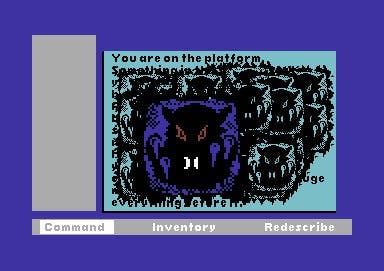The Rats
Real-time text adventure strategy? What?
In 1985 this seminal title combined strategy, resource management, tech trees and real-time text adventure vignettes to incredible effect. Based on James Herbert's grisly 1973 horror novel (and released by Herbert's own publisher Hodder & Stoughton), the game tasked you with containing, researching and, eventually, eliminating a plague of giant mutant rats busily chomping their way through Greater London's terrified populace.
The game seamlessly interchanged R&D elements with resource management as you placed police, fire-fighters and specialist ratkill units across the map in response to public sightings. Every five minutes or so, a terrifying siren would signal the start of one of the game's incredibly tense 'real-time text adventure' scenarios, where you played as one of the characters in the book.
Played out with an underlying 'thud-thud' heartbeat to convey varying levels of tension, you were given a basic outline of your surroundings, and then had to quickly construct simple commands from a multiple choice menu of words. It was effectively the first ever point and click adventure, three years before LucasArts' Maniac Mansion.

For example, one such scenario might involve a babysitter barricading herself into a room and hiding in a cupboard until the threat subsides. Meanwhile, you'd have to sit tight while rats gnawed through the doors (complete with creepy sound effects, quickening pulse and a corruption of the text - as if the rats were physically gnawing into the screen itself).
Trial and error played a big part, with half the fun coming from discovering new ways to die in gory fashion. As simplistic as it was to see dozens of rats flood onto the screen, the subsequent terror of your screams and the splatter of blood as they launched themselves at you was the stuff of recurring nightmares.
Despite widespread critical acclaim, The Rats sunk completely without trace - but if you can track it down you'll experience one of the most unique 8-bit games ever made. A word of warning, though - the game employed a dreadful multi-load system, and the end of the game required a full reload unless you had a save game handy. The snapshot abilities of most emulators make for a far more pleasurable experience, however.

